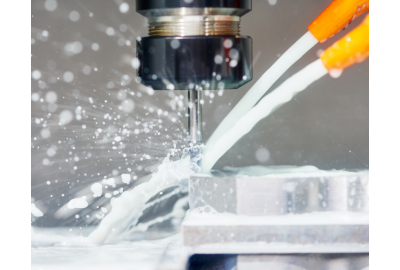There are many considerations when choosing a cutting fluid for a metalworking application. Cutting fluids and lubricants will differ in terms of their composition and physical properties, designed for particular applications. All these factors must be balanced against cost to ensure that you pick the perfect product to meet your needs. In some cases, you may need to compromise, but with expert support and advice, you will often be able to find a product that meets all of your demands.
This is often a reason why buyers in the metalworking sector remain loyal to legacy products. There is financial cost and an element of risk involved in switching to a new product, and it may not seem worthwhile to take that chance even if there are significant performance optimisations to be gained. However, provided you have a good understanding of your requirements and strong technical knowledge - or an expert you can trust - it is often worthwhile to upgrade.
The other factor in making a switch is the regular process of upgrading and discontinuing lubricants that major manufacturers engage in. Sometimes, you don’t have a choice but to break away from tradition and try something new. If you need support in finding a suitable alternative product, the technical experts at Broughton Lubricants can support you with advice tailored to your specifications. Thanks to our many years of experience, we understand a wide range of legacy products and can guide you towards the most suitable upgrade for your needs.
Thankfully, there are significant benefits to be gained whether you are upgrading by choice or out of necessity. There is no better example than Castrol’s XBB range of metalworking fluids, which build on previous product ranges and are precision-engineered to deliver exceptional performance, reduced maintenance requirements and a host of benefits to meet the needs of any application.
Why choose the XBB range for metalworking processes?
Castrol's XBB products are semi-synthetic, which means that they offer an excellent standard of performance, high efficiency, and an extended lifespan compared to mineral oils, but remain cost-effective compared with fully synthetic products.
For many metalworking processes, it is vital to regularly test the pH, concentration, bacterial content and other variables of the metalworking fluid in use to optimise machining performance, but the stability of the XBB range reduces these maintenance requirements. In fact, both the Castrol Alusol XBB and Hysol XBB fluids resist pH changes for longer than other products on the market. This keeps your cutting fluids working at the highest level for longer and thereby lowers operational costs while improving machining performance.
Most products in the range are free from chlorine, biocides like formaldehyde, and boron, which can help you to meet the legislative requirements for waste treatment and disposal that may apply to your sector.
What properties should a cutting fluid have?
Lubricant products themselves are undergoing significant development to ensure that they can contribute to the efficient generation of green energy without negatively impacting the environment themselves. For example, Castrol developed the world’s first carbon neutral gear oil for wind turbines, and other manufacturers have contributed their own efforts to decarbonise the lifespan of lubricants.
Most turbines use nearly 100 gallons of oil at a time and it needs to be replaced once a year. The average size of a wind farm varies, but on average many farms are using thousands of gallons of lubricant per year. This is why using products that can be recycled, reused or biodegraded is an important way that wind farm operators can further ensure the environmental friendliness of their operations.
Another factor to consider is the lifespan of the lubricant product you are using. Most oils need to be changed around once per year, and the turbine will not be in operation during this process, so it is also important to consider how this will affect the unit’s capacity. Some products will have longer change intervals than others, so this must be factored into overall calculations about sustainability.
Almost every method of renewable power generation that uses turbines will rely on lubricants to operate as efficiently as possible. For example, as well as wind turbines, hydroelectric turbines make use of oils and greases to lubricate bearings, decrease internal resistance and maximise energy generation. This means that a variety of lubricant products are common in both pumped hydroelectric energy storage and run-of-river hydroelectricity plants.
There are lubricant products that are specially designed for this type of application, which provide low foaming tendency, efficiency and operability at a wide temperature range, and longer oil change intervals. These qualities are all vital for improving efficiency in hydroelectric power generation.
As this demonstrates, each type of unit and each application will have different lubricant requirements that you should consider before choosing a product. While manufacturers’ recommendations are typically a useful place to start in terms of identifying the appropriate product, there are often reasons why you should consult other sources in addition. For example, the market for oils, greases and other lubricant products changes very quickly, while the units themselves will usually last a long time, especially if the right lubricant is chosen. This means that lubricants recommended in a user’s manual for a piece of machinery may have been discontinued, or that more advanced products have reached the market that can outperform the lubricant you have been encouraged to use.
In such cases, it is important to consult an expert about the lubricant you are using for your specific use case. At Broughton Lubricants, we can recommend the most suitable product that is currently available and even test your machinery and the lubricants you are using to determine whether or not you could make improvements.
To find out more about choosing the right lubricant to maintain wind turbines or other industrial machinery, or for advice on the sustainability and eco-friendly application of different products, call Broughton Lubricants today on 03300 555 655.




